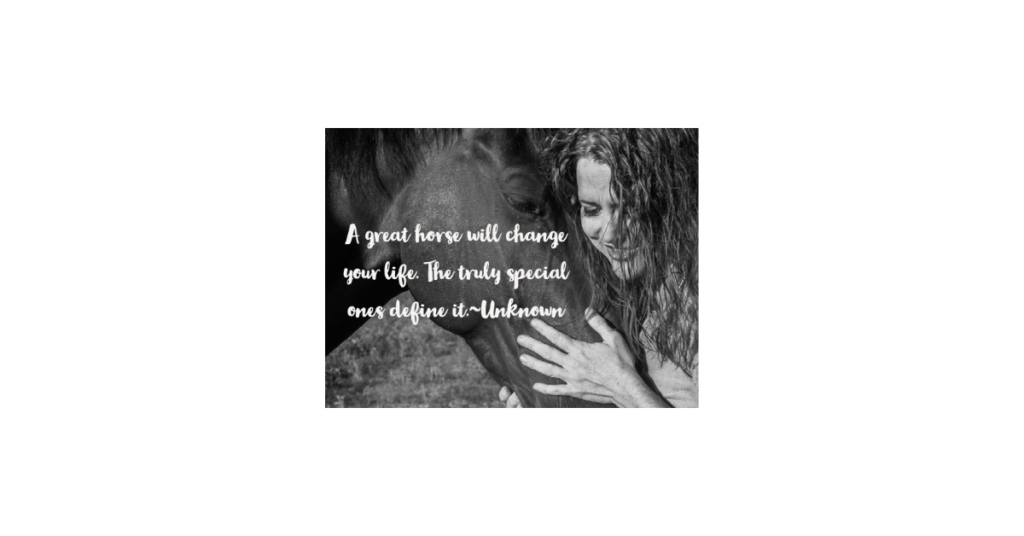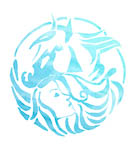7 Best Books for Building Trust With Your (Rescue) Horse

You want to know how to build trust with your horse? And maybe not just any horse, but a rescue horse?
Many horse lovers have done it. They've searched for “horse rescues near me” or “horses for adoption” and one or more of those rescue horses stole their heart. Understanding horse behavior itself is a science, but taking that knowledge and applying it to care for and train an anxious horse, which is virtually a guarantee in rescue horses who are often abused or neglected, requires a bit more knowledge, compassion, and a willingness to evaluate not only the horse, but even you as the owner/rider.
This may also apply if you did an off the track thoroughbred adoption, a rescue from a kill pen, or simply took in a horse from an individual or family that could no longer care for it. No matter the circumstances, you may be discovering you have a scared horse on your hands. And while you may eventually want or need to find a horse trainer near you, or a natural horsemanship trainer you want to follow, having some books to help you “think like a horse” will help get you started and/or will have them be at your fingertips when you need to look something up quickly.
While there are many horse training books out there, training is so much more than teaching a horse to lunge, or figuring out why your horse is cribbing. It can mean understanding the brain of a horse, the anatomy of a horse, even the history of the horse itself. But don't get overwhelmed, I'm not saying you need to go to vet school or even like history! Many of these books explain things in a way that will connect the dots so that is not necessary.
Lastly, understanding anxiety in horses really must include recognizing both the signs of anxiety, as well as calming signals, in your horse. When I began to understand these last two, my relationships with my horses became profoundly deep and there was so much more trust there. I'm known for being a “horse whisperer”, i.e. for gaining the trust of a horse quickly and/or deeply. While some of that gift truly is my own instinct, much of it is also learned from books.
You want to know how to build trust with your horse or think like a horse? Check out these books. These are the ones I turn to again and again, and I've rescued and rehabilitated quite a few horses. And every one of them was an anxious horse.
Horse Brain Human Brain, The Neuroscience of Horsemanship, written by Janet Jones PhD, is a newer book, published in 2020, explaining the brain of the horse in comparison and contrast to the human brain, while also helping riders to become better riders by using the information. Don't let the word “neuroscience” scare you. She makes the brain easy to understand and wow, does it give you great insight into not only your horse but YOU! I especially loved the explanation of a horse's powerful senses and that by understanding everything they can or cannot, see, hear, taste, smell, etc. you can build a better relationship with your horse. She does focus a great deal on people who ride their horses, but the information is very beneficial even if your horse is not ridable or you simply choose not to ride him or her. If you're a bit of a science geek like me, (even if only with horses) you'll LOVE this book. j
One of the very first books I read after not owning a horse in 20+ years and unexpectedly taking in Scout, a huge bay Dutch Warmblood that not even professional trainers would take on, was The Tao of Equus by Linda Kohanov. I mentioned above that often to understand the horse, you also had to understand YOU.
Linda Kohanov was a pioneer in being one of the first to openly discuss the spiritual and emotional lives of horses and the need to understand ourselves spiritually and emotionally in order to understand the horses we love. Or fear. Or both.
It will challenge you, in a very supportive way, to look at what you are bringing with you every time you step into the stall, round pen, or pasture. Because looking at that will change how you look at your horse and will improve the relationship you have with any horse that crosses your path. It's not what most would consider a “horse training” book but it certainly is one if you want to develop a deep trust with your horse that has likely experienced trauma. It doesn't always start with the horse, sometimes it starts with you. If you've experienced trauma also, you may be bringing it with you and your horse may be responding to it. I can't recommend The Tao of Equus enough if you are on a healing path for yourself as well as your horse.
This is another one that may not seem like a horse training book, but the information gleaned, experienced, and shared by Pulitzer Prize winner David Philipps in Wild Horse Country: The History, Myth and Future of the Mustang will stir up the passion you have for horses, their spirit, and the ever-present “wildness” found even in our domesticated horses.
I picked up this book and wasn't sure I would like it because I'm not a big “history” buff, but just like in school, sometimes you have to have the right teacher to bring a subject alive. And David Philipps did exactly that. The mustang horse has a mystery that pulls us in, and David explains so much of why that is in his history of the breed. He then explains the challenges both the mustangs, and the U.S. government agency assigned to protect them, have with regards to their ever increasing population.
I eventually plan to adopt a BLM Mustang, but from my understanding, they are actually easier to train in some respects than a rescued horse, because they haven't experienced the same level and sometimes ferocity of trauma at the hands of humans like rescued horses have. Nonetheless, the insight into their habitat, health, and behaviors can be invaluable when working with your horse.
This small book, co-written by Dr. Stephen Peters and Martin Black, provided the scientific understanding of the anxiety signs and calming signs I mentioned above, that have been critical in my achieving big change with my anxious horses. Evidence-based Horsemanship explains the science behind some common as well as lesser-known anxiety cues displayed by horses. Even the twitch of a muzzle or the blink of an eye can be a sign of anxiety in a horse. Dr. Stephen Peters is a neuropsychologist and horse owner that explains these and other concepts about horses, such as their incredible memory of traumatic experiences, in a way that will make you slap your forehead for “not recognizing” this or that in your horses. Martin Black, a longtime horseman, shares stories to back up the science aspect.
I don't even remember the first time I heard the name Jim Masterson or The Masterson Method. I had the opportunity to see Jim interviewed live in a Facebook group I was a member of and was just delighted with him, as well as the information he shared about helping a horse to relax. He was funny, with a dry wit that I am a fan of, but more importantly it was obvious he had a passion for helping horses.
His book Beyond Horse Massage: A Breakthrough Interactive Method for Alleviating Soreness, Strain and Tension and the DVD Beyond Horse Massage: Introducing the Masterson Method will explain many methods of helping a horse to relax which results in pain relief, anxiety relief, and overall improvement in mood and behavior. In doing these extremely easy bodywork methods, you can then see with your own eyes how your horse expresses pain, worry or anxiety, as well as calming signals, relaxation and ultimately, trust.
What has been fascinating to me is how individually different my horses can be with all of those things. Snarling, head turning, leg biting, ear turning, eye blinking, jaw locking, leg locking, rocking and pacing have been many of the anxiety signs I've seen. Eye blinking, head dropping, mutual grooming, lip twitching, licking and chewing, and leaning into me have all been signs of relaxation in my horses.
Even just learning the first technique he teaches, The Bladder Meridian, can shock you with the amount of 1) tension your horse had and/or 2) how much they can relax.
A curious little book, Horse Harmony: Understanding Horse Types and Temperaments, Are You and Your Horse a Good Fit?, by veterinarian Madalyn Ward, takes an unusual approach to horses. She types horses using a Chinese medicine approach, coming up with 11 different personality types.
Each type includes recommendations for feeding, training, management approach and even what “occupation” the horse might excel in. There is an easy to complete questionnaire to determine your horse's type and ultimately, to make sure that you and your horse are a good fit. Because while all the knowledge from these books I've shared can make a big difference if your personalities can work together, sometimes it is best for you AND the horse to find a better fit.
It's given me insight into some of my horses, that has completely changed the way I've approached them and their training.
I first learned clicker training with a Golden Retriever puppy in the 1990s. (Yes, I am aging myself there.) And while a number of labels are used to describe the philosophy when using it with horses, such as positive reinforcement, R+, clicker training, target training, and many, many different trainers teaching them, I prefer the language used by Hannah Weston and Rachel Bedingfield seen on the cover of their book.
Connection Training, The Heart and Science of Positive Horse Training presents concepts about this training method that I hadn't seen anywhere else. I am not a diehard clicker trainer. But I have a number of tools in my horse training toolbox that I gleaned from their book.
Ultimately, when training an anxious horse, it is all about the connection you make with them. That's while I like the term “connection training.”
Most of the horses I've rescued could be saved with the knowledge I gained from these books. A couple could be helped but these books also helped me realize that they can't all be saved. Some just needed a safe place to land and someone who was willing to love them until they were ready to move on from this world.
It was because of one of those horses, Scout, that I mentioned above, that I found most of these books. I was searching for ways to relieve him of his extreme anxiety. They couldn't save him like I hoped but they did improve his quality of life to some extent while he was here, and also showed me that what he was dealing with (neurological damage from living the first 10 years of his life in a stall) couldn't be overcome with diet or training.
The information I gained from these and other books HAVE saved many others I have given a home to. Some moved onto other loving homes that they wouldn't have been able to go to otherwise. And some are still with me.
I hope this has been helpful but recognize this list is certainly not all encompassing. If you have one or two titles you turn to again and again, I want to hear about them, so please drop them in the comments. Maybe I will add them to the page. 🙂

Pingback: 7 Tips to Manage Emotions While Horse Training - Julie Bradshaw-Horse Magic and Training